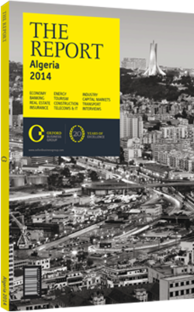Prime Minister Abdelmalek Sellal on the presidential programme

Over the past few years, Algeria has made significant economic progress and achieved many positive indicators. From 2010 to 2014, the country’s GDP shows an average increase of 4%, while inflation was brought under control and is now down to around 3.5%. The unemployment rate, meanwhile, has declined significantly, from 29.5% in 2000 to 9.8% in 2013.
To consolidate the achievements and fulfil the commitments of the presidential programme, the government will develop a five-year strategic growth plan for 2015-19. The objectives will be to reduce unemployment, improve living conditions, achieve a 7% annual growth rate, ensure that infrastructure is managed and maintained, and diversify the national economy. It will also implement a specific development programme for the southern wilayas (provinces). The draft Action Plan details the measures taken to modernise financial activities, strengthen the fight against corruption and money laundering, improve the business climate and mobilise industrial land.
Specific actions have been taken to guide and regulate the market, ensure a continuous supply of goods, and protect consumers and their purchasing power. The government will continue its efforts to reduce informal trade. Finally, the Action Plan will supervise the launch of 30 quality-control laboratories.
The National Economic and Social Pact signed on February 23, 2014 with economic and social partners defined the direction for a strong, competitive economy that boosts employment and generates wealth. In both the public and private sectors, the government will work to extend and modernise industry, promote domestic production and support activities that favour integration. Additional measures will be taken to improve corporate governance, develop standards and accreditation, and strengthen human resources.
The creation of an industrial mining group will enable the development of a large complex to make fertiliser using iron deposits in Gara Djebilet and Mecheri Abdelaziz. It will also double the country’s marble and salt production and allow the creation of new mines for zinc, lead, baryte and gold in six provinces.
In farming, our goals are to expand irrigated areas by 1m ha, enhance mechanisation and increase the use of seeds that have a potential for higher production. Algeria is also looking to develop Saharan agriculture. Development in the food industry will be encouraged to enhance mass production and promote exports. Plans will be implemented to manage 172,000 ha of forest and reforest 340,000 ha, with 100,000 ha dedicated for planting rustic fruit trees near water dams to mitigate erosion. Investment in fisheries and aquaculture will continue to receive support from the state. Efforts to modernise the national maritime fleet and to develop ports and fishing protection areas will double output in this segment.
In oil, the government will maintain its position as an active player. Its strategy will boost exploration and development by exploiting new oil and gas sources to enable further growth in production. Pilot holes will be dug to define the production processes of unconventional hydrocarbons, and 14 new oil pipelines will be built. A building and rehabilitation programme will construct six new refineries and rehabilitate the existing ones, bringing the national refining and fuel storage capacity to 60m tonnes by 2018.
Such infrastructure development will provide electricity and natural gas for 1.5m and 2m new customers, respectively. Power generation capacity will be raised with the completion of a factory to make gas turbines and power plant components. A vast renewable energy programme has been launched, with the first hybrid plant operating since 2011 and 23 photovoltaic plants and a wind farm to begin production shortly.
Algeria’s domestic resources make the development of the tourism industry an absolute necessity. The priority here will be to monitor ongoing projects, including a total of 50,000 beds and 15 thermal tourism centres. Meanwhile, proper supervision and support will be provided to encourage the promotion of tourism.
You have reached the limit of premium articles you can view for free.
Choose from the options below to purchase print or digital editions of our Reports. You can also purchase a website subscription giving you unlimited access to all of our Reports online for 12 months.
If you have already purchased this Report or have a website subscription, please login to continue.

